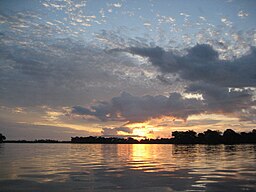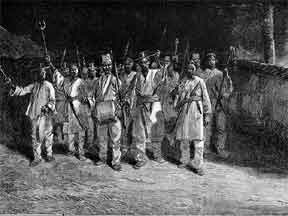Some scholars believe the unpleasantness in China in the mid 1800s was the result of the Qing Dynasty's defeat at the hands of the British in the somewhat derogatorily named Opium War (granted, free trade as advanced by the British trade interests in the region did include the somewhat controversial opium). Other scholars contend that the Chinese black eye of the Opium War was a mere symptom of a deeper rot that became obvious a decade or so later.
In any event, while it is difficult to pinpoint exactly where the spark of chaos first was struck, if any one can be so implicated, it may have actually been the teachings of the itinerant American Deist preacher,
Dennis Michael Murphy. Reverend Murphy was unusual for the Irish descended immigrants to the state of Nova Scotia (Murphy grew up in Halifax) in that instead of continuing with his ancestors' staunch Catholicism, he embraced the teachings of Deist Christianity (though some claimed his brand of Deism was closer to the 18th century variety, with little if any Chrisitan underpinnings). Murphy was a restless man, however. In the 1840s he began looking for passage on a Yankee Trader bound for the Orient, and eventually landed in China (though the precise year is not known).
Murphy, by all accounts a rather charismatic figure, found surprisingly fertile ground for his teachings (as well as his rather glowing reports of the American system of government) among both the poor lower classes of Southern China who chafed at Manchu rule and neglect, and a growingly disaffected group of Chinese intellectuals who in a western nation may have found themselves in prominent positions in trade or government, but in the undoubtably corrupt and restrictive Civil Service system of Qing China, could not break through the civil service examinations. Especially heavily represented in the early days were the
Hakka people of Southern China.
While proportionately, few Southern Chinese truly embraced Deist Christianity, a larger percentage began to incorporate Deist thought into native Buddhist beliefs, laying the groundwork for Deist Buddhism.
The Qing government at first only harrassed the growing Deist (and crypto-republican) movement in the South, but eventually concern did waken in the bureacracy and Murphy was arrested and deported to British Hong Kong. However, Reverend Murphy, however, instead of taking ship to home, snuck back into China proper. While Murphy was passionate, he was less able as a fugitive and was recaptured and executed by the Qing authorities, along with several of his parishioners who were captured with him. A proclaimation at the same time from the Emperor declared Deism a forbidden belief. Both the United States and France protested the executions and proclaimation.
The 'massacre' (less then a score were actually executed) of Chinese deists became the rallying cry for the subsequent Southern uprising that broke out in 1850. A mixture of Deist true believers, disaffectived republican intellectuals, and disgruntled peasants, it would rapidly grow to encompass a nation. While Murphy would be honored as a teacher and martyr, his role was minimized in subsequent years in favor of native Chinese patriots.


